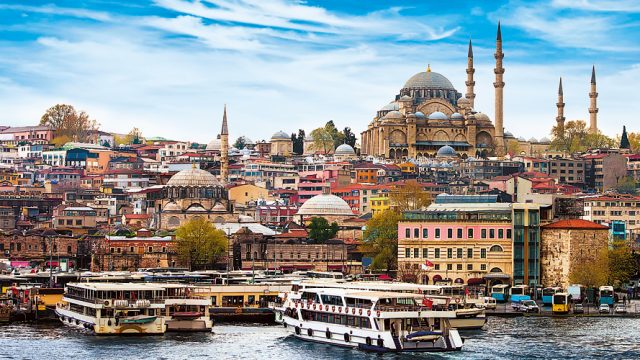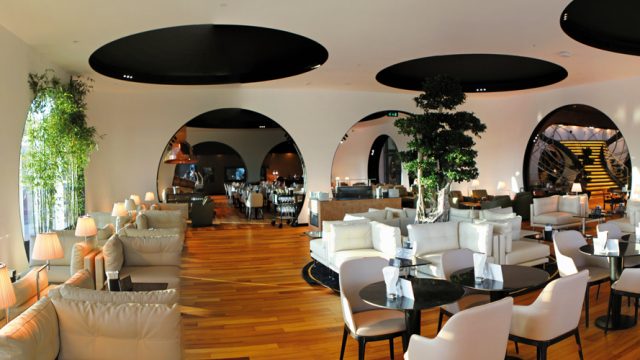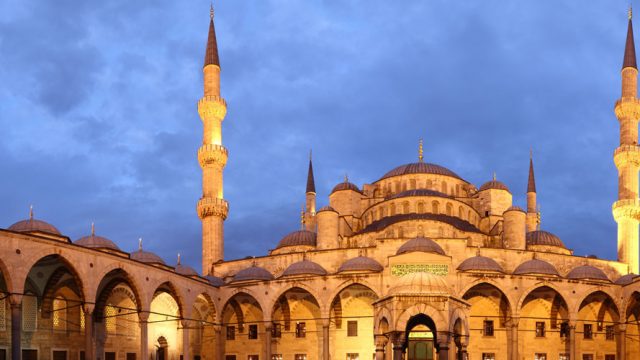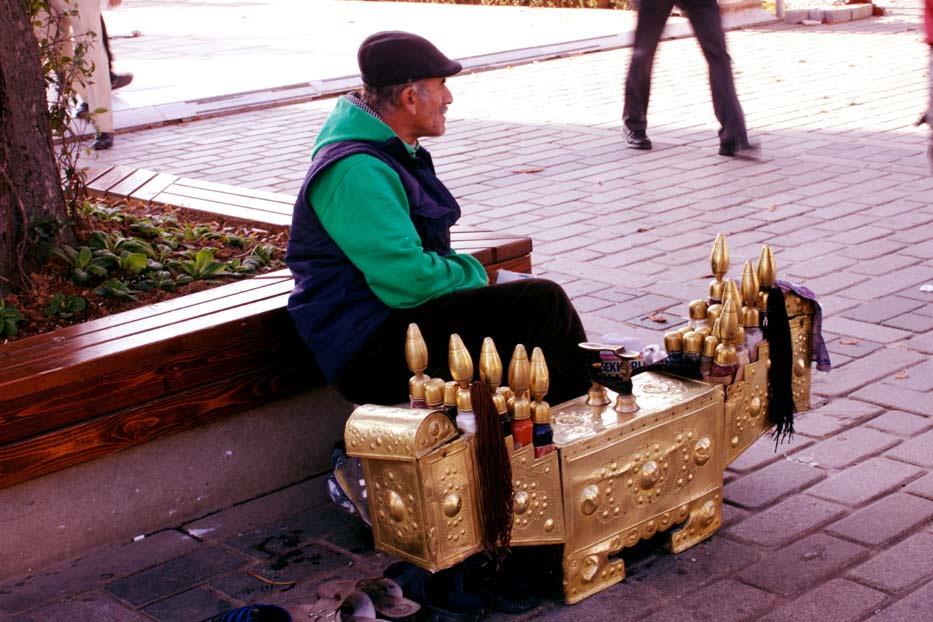
For Ottoman grandeur, one need not look beyond shoe-shiner's boxes, chic as the Taj on a full moon night compared to proletariat boxes. For a mere two euros, you can employ this dapper care-taking gentleman in newsboy cap to restore your travel-worn footwear.
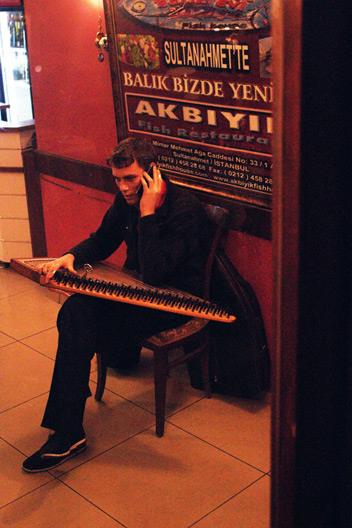
A musician with a lap harp - a kanoun - takes a break. Every eatery that is not a café in Istanbul, is probably a fish restaurant. And Turkey being at the cusp of the East and the West, they have imbibed the best of both worlds in their cuisine. So polish off those exotic fishes, octopuses and delectable squid rings.
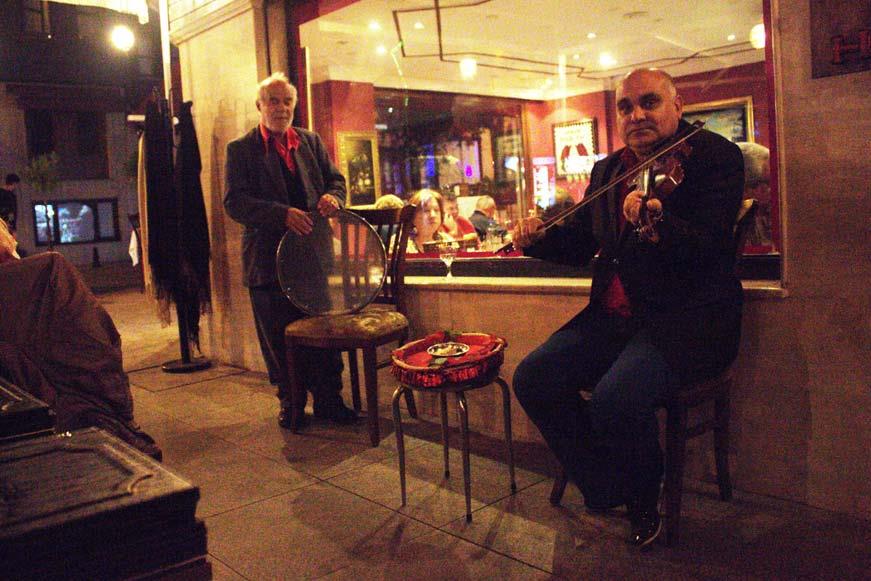
Cafés are sprinkled liberally around Sultanahmet and the mezze is to die for. Run by endearing and utterly jovial people, they are also usually cheaper than they look. And if the musicians recognise you for Indians, they will eagerly play for you strains from Shri 420.
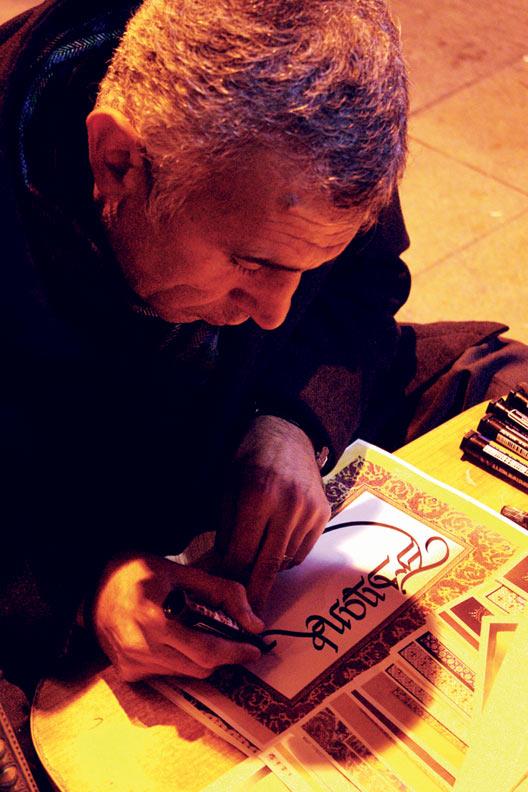
With figurative art being forbidden in Islam, visual creativity flourished in the Muslim world in decorative pattern-making and calligraphy. And in the streets of the walled city, a calligrapher will write your name in English, but in luscious Persian strokes, in minutes for a mere five euros.
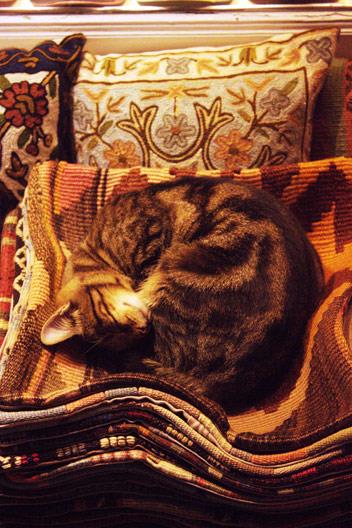
Cats are ubiquitous in the streets of Istanbul. They are lazy, pampered, and usually remarkably fat. Walk around Sultanahmet, and you will become conscious of chilled-out tabbies carefully measuring you through half-closed eyes. And if a stray chooses to rest at a carpet shop, it is wholeheartedly allowed cushions.
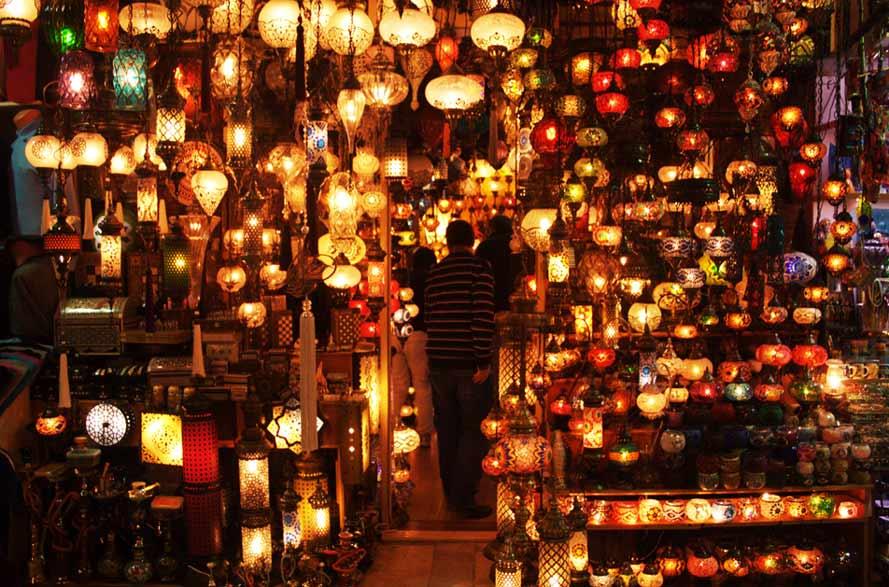
Built in 1464, Grand Bazaar in Istanbul is one of the largest - and definitely exotic - covered markets in the world, with over 4,000 shops, 22 gates and 64 streets. Situated within the walled city and only a short walk away from the wondrous basilica-mosque-museum Hagia Sophia, its streets glitter with all kinds of merchandise from jewels and carpets to stained-glass lamps.
Turkey


